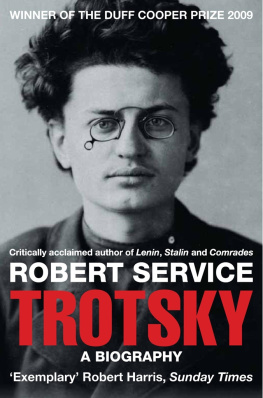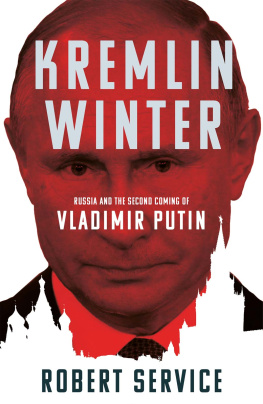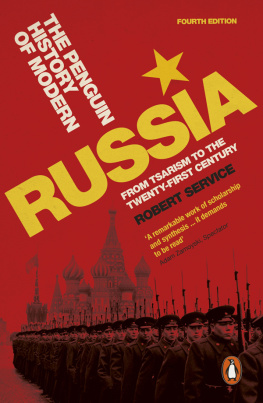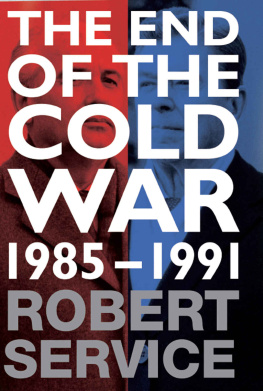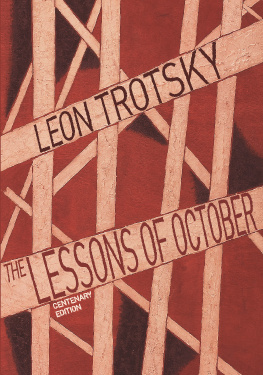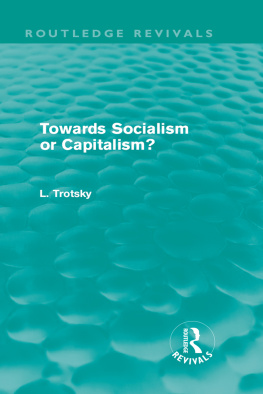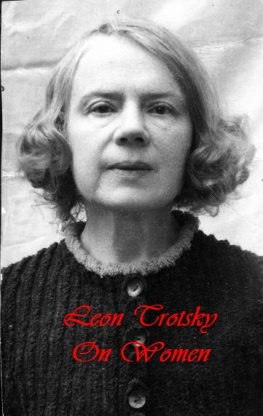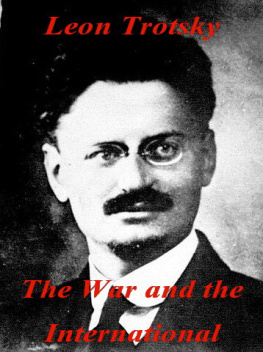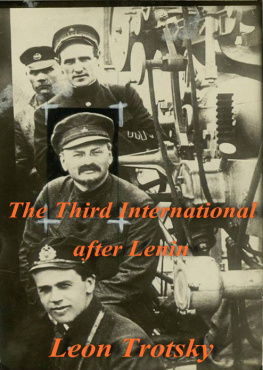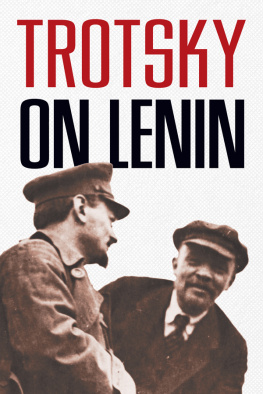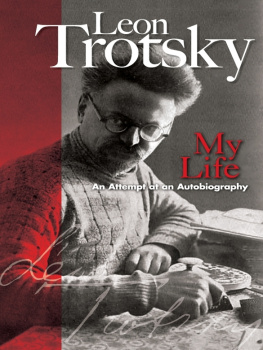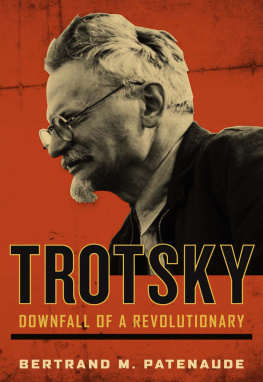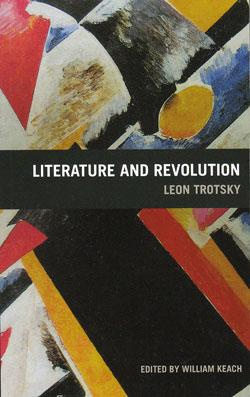ROBERT SERVICE
TROTSKY
A BIOGRAPHY
PAN BOOKS
CONTENTS
List of Illustrations






Preface
This is the third book in a trilogy about the leaders of the early Soviet state. The Hoover Institution has been my base for the archival research, and I am grateful to Director John Raisian, Senior Associate Director Richard Sousa and Board of Overseers member Tad Taube, as well as to the Sarah Scaife Foundation, for the friendly, efficient way they set up the opportunity to carry out the work at Stanford. Deborah Ventura and Celeste Szeto too could not have been more helpful. In the archives I received indispensable assistance from Elena Danielson, Linda Bernard, Carol Leadenham, Lora Soroka, David Jacobs, Ron Bulatoff, Zbigniew Stanczyk, Lyalya Kharitonova, Dale Reed and Anatol Shmelev. They went far beyond the demands of their responsibilities, frequently alerting me to material whose existence was unknown to me. Our conversations about the hundreds of boxes in diverse collections were of inestimable assistance.
The fresh material used in the book includes folders from the Trotsky Collection, the Boris Nicolaevsky Collection, the Bertram Wolfe Collection, the sundry records of Politburo and Central Committee for the 1920s, the papers deposited by Trotskys assistants and followers and the internal records of the nascent Fourth International. The gem in the Hoover Archives is the first draft of Trotskys autobiography which has much information he excluded from the printed version. Also of importance are the letters from and to Trotsky as well as the unpublished variants of his works and the correspondence and memoirs by his wife Natalya and other members of his family across several generations. The Hoover Institution Archives, moreover, have invaluable sources on Trotsky from the Paris office of the Russian Imperial Okhrana, from Nestor Lakobas papers and from Dmitri Volkogonovs papers. Most of such material is used for the first time in this biography. I am grateful too to the staff in the Hoover Institution Library for their diligence in delivering rare contemporary books, articles and newspapers.
Other Trotsky archival holdings consulted for the book include those in Amsterdam, Harvard and Moscow. Whereas Amsterdam and Harvard were mined long ago, the seams in Moscow have been open to prospectors only since 1991. Not only Trotskys personal file and central party records in the Russian State Archive of Social and Political History (once known as the Central Party Archive) but also the papers from the Russian State Archive of Military History and the Central Archive of the Federal Security Service offer important information. The Houghton Library at Harvard University too contains letters in its holdings which have merited reconsideration, and I thank Jennie Rathbun for obtaining the ones I requested. SSEES-UCL in London has a number of early editions of Trotskys books which I was able to consult. My wife Adele Biagi visited the National Archives at Kew in search of documents on Trotsky and discovered several interesting police records.
While writing up the research I benefited from exchanges of opinions with Robert Conquest whose capacious knowledge of episodes in Trotskys life and times gave me plenty of clues to work with. It was also a pleasure to try out ideas on Paul Gregory, Arnold Beichman, Michael Bernshtam, Norman Naimark and Amir Weiner at Hoover and Stanford and on Yuri Slezkine at Berkeley. Pauls annual Soviet archives working group has become a remarkable annual forum for the discussion of questions about the USSRs past. At Oxford I have benefited over many years from working with Katya Andreyev on the courses we have taught together. The Russian and Eurasian Studies Centre and its Library have provided excellent facilities and I am indebted to Richard Ramage, our Administrator, for securing books even during the disruption when our Library was being reconstructed. The Centres Monday seminar, which has run for over half a century, has been a fecund source of ideas for this book even when the topics had nothing to do with Trotsky.
My thanks go to Elena Danielson who recounted her conversations with Ella Wolfe, Frida Kahlos great friend; to Anita Burdman Feferman who knew and wrote about Jean van Heijenoort; to Robin Jacoby whose psychiatric and psychological expertise helped towards an understanding of Trotskys personality; to Tanya Okunskaya, who provided letters from the Turkmenistan party archives; and to the late Brian Pearce who over many years shared his lifetime of reflections on Trotsky and Trotskyism. Olga Kerziouk and Elena Katz gave their informed verdicts on Trotskys accent and diction after we listened online to his speeches in Russian. Gabriel Gorodetsky shared with me the pages of Ivan Maiskis diary which mention Trotsky. Bob Davies, the late John Klier, Keith Sidwell, Faith Wigzeil, Mikhail Zilikov and Andrei Zorin offered advice on particular matters. I am grateful to Robert Harris for lending me his pre-revolutionary map of Odessa and to Harun Yilmaz for obtaining and translating Turkish historical literature.
Harry Shukman and Ian Thatcher took appreciable time away from their own work to read the entire manuscript. Harrys historical interests touch on crucial themes in this biography and I am grateful for his deft, tactful steerage away from many crudities in the draft chapters. Ian has spent his career writing about Trotsky; I appreciate his generosity of spirit in scrutinizing my draft and making suggestions. Both Harry and Ian also kindly allowed me to come back to them with further queries. Simon Sebag Montefiore and Paul Gregory read large parts of the draft and sharpened the argument. Both Simon and Paul wear their learning lightly: my thanks go to them for their insights. Hugo Service cast his eye over the Introduction. Above all, Adele has gone through the book twice, assisted in cutting out mistakes and advised on the course of the argument and narrative. I cannot thank her enough for all her insight and patience: we have talked endlessly about the problems of Trotskys life and, as ever, it is to her that I owe the greatest debt.
My literary agent David Godwin and Macmillan editor Georgina Morley have been as active and encouraging as always; and Peter James has done an excellent job of copy-editing the text with his usual mixture of consultative empathy and incisiveness. It has been a pleasure to work with all three of them.
This book is the first full-length biography of Trotsky written by someone outside Russia who is not a Trotskyist. There have of course been biographies by writers who either were not Trotskyists or had ceased being such and even become hostile to Trotsky; but in each case they were unduly influenced by the material and analysis offered by Trotsky and his leading post-war apologists. Trotsky himself wrote a vivid set of memoirs in 1930, ten years before he died. His Polish-emigrant follower Isaac Deutscher wrote a trilogy of literary dash in 195463 and the French Trotskyist Pierre Brou produced a single-volume study in 1989. Trotsky and Deutscher wrote with brio, and I make no pretence of having matched them in style. But I do contend that Trotsky was selective, evasive and self-aggrandizing in his account and that Deutscher and Brou omitted to ask many of the necessary awkward questions about him. Brou was an idolater; Deutscher, even while believing that the Soviet regime after Stalin could rectify itself and build a humane communist order, worshipped at Trotskys shrine. Trotsky and Deutscher wrote books which gained a lasting influence far outside the perimeter of the political far left, and their highly disputable judgements have all too often been treated as the last word on the subject. That was how they wanted it. The history of the Russian Revolution deserves a more searching approach and this biography is intended to help in all this.

